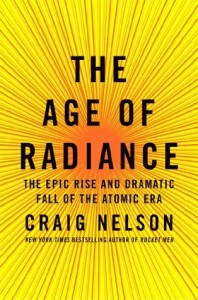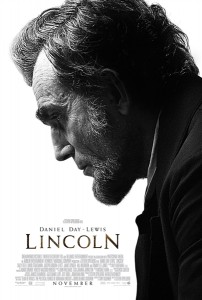 Two things I would say will help dictate whether you are likely to enjoy the book “The Age of Radiance: The Epic Rise and Dramatic Fall of the Atomic Era” by Craig Nelson. The first and most obvious is whether you have interest in the subject matter of learning about the sweeping history of the atom, radiation and nuclear weapons, power, and medicine. The second reason is if you like the style of historical writing that is used by author Craig Nelson. The style that Nelson uses and which is not unique to him is to make liberal use of quotes normally from people involved or who lived through the events described. Nelson likes to construct his story with a smaller mixture of his telling of events and then more weighted towards his use of quotes. If you like hearing more directly from the people involved then you will be more inclined to like this book given that is the style it uses.
Two things I would say will help dictate whether you are likely to enjoy the book “The Age of Radiance: The Epic Rise and Dramatic Fall of the Atomic Era” by Craig Nelson. The first and most obvious is whether you have interest in the subject matter of learning about the sweeping history of the atom, radiation and nuclear weapons, power, and medicine. The second reason is if you like the style of historical writing that is used by author Craig Nelson. The style that Nelson uses and which is not unique to him is to make liberal use of quotes normally from people involved or who lived through the events described. Nelson likes to construct his story with a smaller mixture of his telling of events and then more weighted towards his use of quotes. If you like hearing more directly from the people involved then you will be more inclined to like this book given that is the style it uses.
The book covers a larger span of time than you might imagine for this topic. It covers the discovery of x-Rays in 1895 to the nuclear accident in Fukushima, Japan in 2011. If you are looking for a heavy dose of science and how exactly things work, that is not what you will find with this book. Nelson gives you a moderate understanding of the scientific principles in play when talking about x-Rays, radiation, the splitting of the atom, nuclear energy and weapons among other topics talked about. While at certain times I wish I had gotten a bit more detailed scientific information than I did get, I can see the balance that Nelson likely had to walk in giving you enough information on the science behind the topics discussed but at the same time not getting bogged down in the details so that it would not become inaccessible to your average reader. In that sense I think Nelson has done a good job of giving you enough of a taste of the scientific underpinnings of the story he is telling to allow you to understand the topics discussed. Nelson also gives you a good idea of the large and varied group of people that you encounter over the course of the history of this topic and the politics and personal stories that are prevalent with in this subject.
If you are looking for a good but not extremely technical look at radiation and nuclear based devices this book is certainly worth a look in my estimation.






